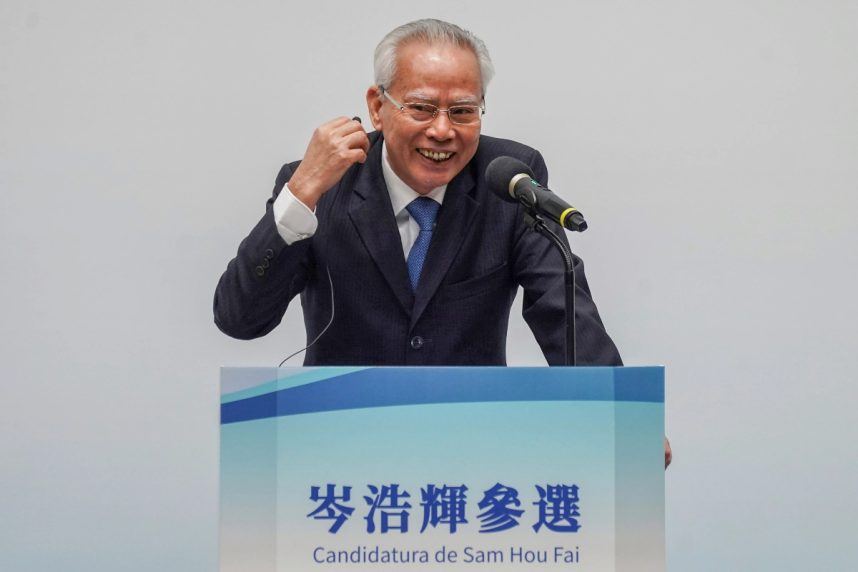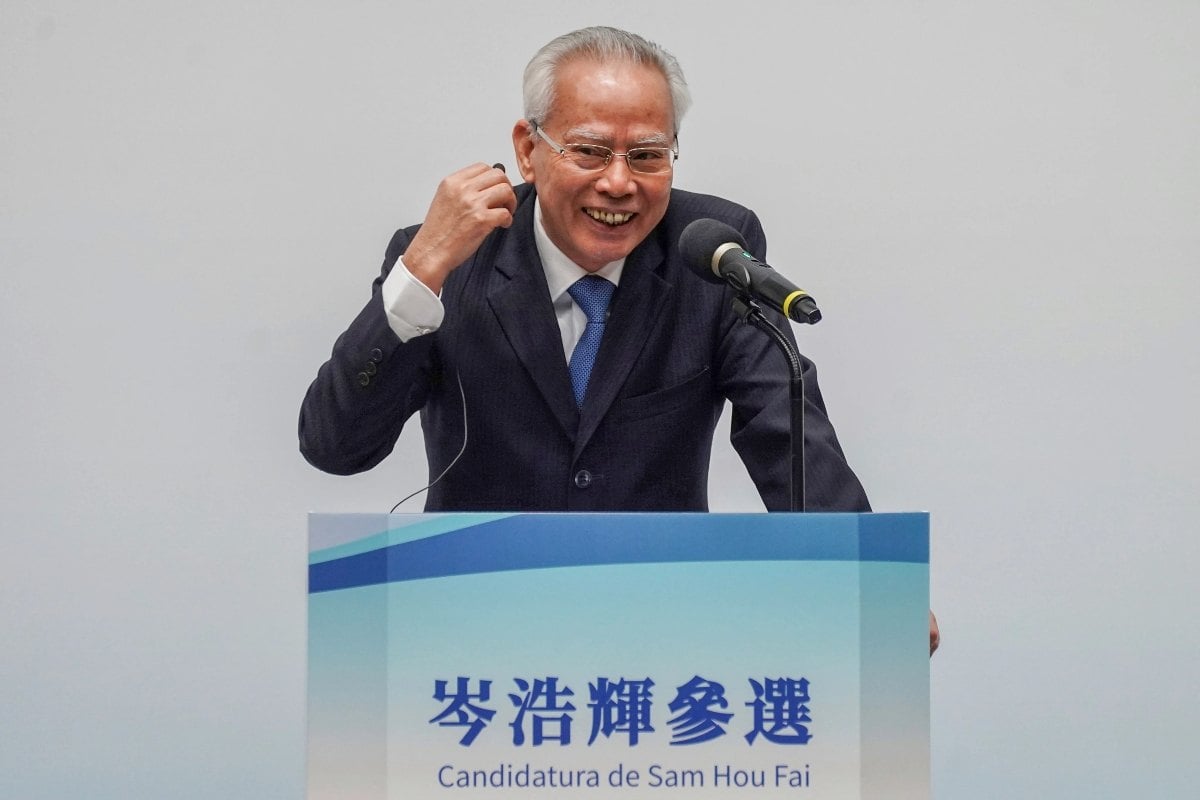Posted on: October 14, 2024, 08:26h.
Last updated on: October 14, 2024, 08:26h.
Sam Hou Fai, 62, has made history by becoming the first person to be elected chief executive of Macau, the head of government in the Chinese Special Administrative Region (SAR), born on the mainland.

Sunday, the city’s designated Election Committee formally elected Sam to the role of chief executive. The only candidate to come forward to replace Ho Iat Seng, who announced he wouldn’t seek a second five-year term in August because of health reasons, Sam received 394 of the 398 ballots cast. Four ballots were submitted blank.
I would like to thank all sectors of the community for their recognition so that I can continue to serve Macau, the country, and the general public in a higher, more comprehensive, and broader scope,” Sam said following the vote.
Sam’s election was historic on two counts. Gaining nearly 99% of the Election Committee’s support was an all-time high, though he ran uncontested, and Sam is also the first person to become chief executive of Macau who was born on the mainland.
When he’s sworn in on Dec. 20, Sam will officially become only the third chief executive of the casino hub since Macau was handed back to Chinese control from Portugal in 1999.
Not Exactly a Gaming Fan
Before announcing his intent to succeed Ho, Sam was the president of Macau’s Court of Final Appeal — the city’s highest court.
Born and raised in Zhongshan, Sam received his bachelor’s degree in law at Peking University on the mainland before moving to Macau in 1986 to achieve his law degree at Coimbra University. He joined the city’s Public Prosecution’s Office in 1995.
Sam climbed the judicial ranks after being appointed to the Court of First Instance in 1997. With Macau’s Election Committee comprised of Beijing-approved politicians, businesspeople, and local leaders, Sam’s candidacy kept possible would-be challengers at bay.
Sam’s ascent to the Macau Government Headquarters might concern the region’s gaming industry, which accounts for about 80 cents of every tax dollar the local government collects. Sam believes it’s in Macau’s best interest to lessen its economic and societal dependency on the casino business. He’s supportive of more non-gaming developments and investments to diversify the economy.
During his campaign, Sam labeled Macau’s “uncontrolled and barbaric” expansion of casino gambling since being handed back to China as “detrimental to the development of society.” He said late last month that he does not intend to “shrink or stop the gaming industry” but to “develop it in a healthy and orderly manner.”
Gaming Growth
Before China assumed control of Macau and placed the SAR under its “one country, two systems” policy principle that affords the enclave self-governing powers with its own laws, economy, and court system, the autonomous colony’s gaming industry was monopolized by Hong Kong billionaire Stanley Ho.
Ho, who died in March 2020 at the age of 98, employed about a quarter of the Macau workforce at the height of his reign as the so-called “King of Gambling.” After the region was given back to China, the local government opted to welcome new gaming operators.
Sheldon Adelson, the late casino magnate behind the Las Vegas Sands empire, wagered a big bet on developing Cotai, reclaimed land between Taipa and Coloane island, into the world’s richest gaming market. Sands, along with four other casino newcomers in the area, including MGM and Wynn, grew annual gross gaming revenue from $2.75 billion in 2002 to $45 billion in 2013.



